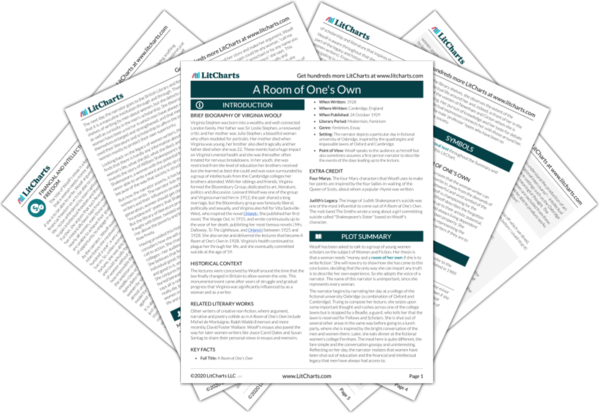But
Charlotte Bronte has a very different relationship to her written voice. The narrator quotes a passage from
Jane Eyre, showing how unfulfilled and embittered the narrative is, showing how Bronte was unable to shed her own life when writing. The most unfortunate thing about Bronte, the narrator thinks, is that she knew what freedom, travel, and education could have done for her and her work, but never was able to experience or profit from those things.
